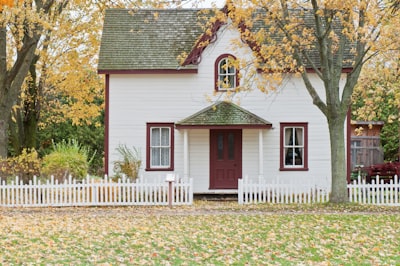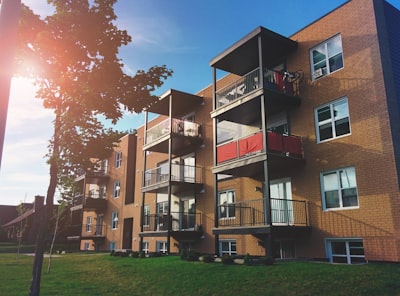How to Invest in Real Estate With No Money and make money
How to Invest in Real Estate
How to Invest in Real Estate With No Money has been around for centuries and is one of the oldest ways to make passive income. The great thing about real estate investing is that it can be done with little money down. That said, no money down real estate investing isn’t always feasible, but there are many options out there to help you get started. Here are 11 different real estate investment strategies that you can use to start investing with little money down.
How To Invest In Real Estate With No Money
You can invest in real estate with no money by investing in strategies such as seller financing, house hacking, and government loans.
Seller financing is a loan offered by real estate developers to home buyers to purchase a home.
House hacking (or house hack) involves remodeling a home and making it habitable for a higher amount of money than the original price of the home.
Government loans are also an option for investing in real estate without money. They are interest-free loans offered by the government to home-buyers who have purchased properties.

1. Hard Money Lenders
The hard money lending industry offers house flippers a non-conforming loan with high interest rates and short terms, making it an ideal option for financing a real estate deal.
Hard money loan investors are typically private equity or investment firms. They provide non-conforming loans to a real estate market with properties that are hard to classify in the traditional mortgage market. These loans have high interest rates and short terms of 10 to 15 years. Which make them more attractive for property owners looking for quick cash.
7. Seller Financing
Seller financing is a popular way to invest in real estate with using your own money. In seller financing, an investor purchases a property from the homeowner or seller and agrees to pay an interest rate and make monthly payments to the homeowner. The homeowner usually retains the title of the property and remains responsible for the maintenance of the home.
The homeowner is typically able to remain in the home while investing money in payments of the loan. This arrangement helps both parties save money on interest payments and provides stability for both parties involved.

8. House Hacking
House hacking involves living in one unit of a multi-unit property, while renting out the other unit as a landlord to generate dollars. It can be a great way to earn extra money while saving money on rental costs. house hacking also offers tax benefits, as it permits investors to take off some of their income and lower their tax liability.
House hacking is often used as a stepping stone to investing in real estate or other investment opportunities, as it allows beginner investors to test their investment thesis and learn about investing before committing more money.
2. Private Money Lenders
Private money loans are typically loans offered by private investors and banks. With private money loans, investors can complete a transaction quickly and at a lower cost. Investors often choose this type of financing when they have good credit and can make payments on the purchase price
However, due to their high interest rate, these loans can be risky for with a limited cash flow or who want to continue paying down debt from other sources of income. You must make sure you have enough money coming in before using this option.

3. Wholesaling
Wholesaling is a real estate investing strategy where you purchase real estate with the intent of selling it to another real estate investor for a higher price. In wholesale investing, you buy properties from a seller at a discount and assign the contract to a buyer.
Wholesalers acquire the contract from the seller of the property and assign it to a buyer for a fee. They typically work on behalf of investment firms, real estate developers, or private equity firms looking for properties to purchase or lease.
While investing in real estate can offer great returns, it is also volatile and requires significant investment capital. Therefore, investing in real estate requires careful planning and research before investing money in any property.
4. Equity Partnerships
Equity partnerships are a great way of investing in real estate if you don’t have much money to spend. Instead of investing individually in real estate properties, you can pool your resources with others and purchase, manage, and own properties together as part of an equity partnership. This way, you can potentially save money on costs such as property management and take home a profit of your investment.
By investing in equity partnerships, you can benefit from the economies of scale and management expertise of organizations like real estate investment trusts (REITs). If you are looking for an investment option that has the potential to provide rental income while also improving your investment portfolio, consider equity partnerships.

6. Option To Buy
Under a “Lease with Option to Buy” agreement, renters purchase properties at predetermined prices during the term of a lease. Under this type of agreement, the lessee has an option to purchase the property at the end of the lease period for a specified price. This option allows for investment opportunities that wouldn’t be available if the tenant had no right to purchase the property.
By investing under such agreements, tenants can save money and increase their financial security. Additionally, by investing in real estate under lease-with-option-to-buy agreements, tenants benefit from increased rental income and property value appreciation over time.
5. Home Equity
Home equity lines of credit (HELOCs) are a way to invest in real estate without spending a large sum of money. Homeowners can use HELOCs to add additional living space to their house, for example by adding a bedroom or bathroom. They can also use HELOCs to renovate the house, such as replacing the roof or adding windows.
Home equity line of credit interest rates vary from lender to lender and depend on several factors, including the interest rate of the home equity line and the credit score of the borrower.
Some credit unions and banks offer interest-free HELOCs that allow borrowers to access their home equity without paying interest or fees for a period of time. This type of loan is ideal for homeowners who want to renovate their home without financing it all at once.
9. Government USDA Loan
USDA loans are a great option for those with limited income. These loans are available to low-income families and can be used to purchase or repair a home. They are commonly known as affordable housing loans, and they offer several advantages over other types of mortgage loans, including no down payment required, interest-free loan periods, and no financing costs.
These loans can also provide some financial support to those who might struggle to make mortgage payments on their own. Government-backed mortgage loan programs are designed with the interest of the borrower in mind, and they can help individuals and families achieve their housing goals no matter their income level.
10. Microloans
Microloan is a great way to invest in real estate with no money. These loans are available through the SBA and can be used to help small businesses start up or expand their real estate investment. These loans are interest-free, with flexible repayment options, and they have no credit score requirements.
They can be used for real estate purchases, properties refinance, lease financing, and more. Some of the advantages of investing in real estate through microloans include helping businesses grow and improving their financial health.
9. SBA Loans For Investing in Commercial Real Estate
An S-Loan from the Small Business Administration (SBA) can be a great way to make investing in real estate easy and affordable. The SBA provides interest-free loans for investing in real estate properties, such as commercial buildings. These loans can be used to purchase a building, finance ground-up construction, or funding building improvements.
The loan can be used to cover a part of the investment cost or as a down payment on real estate equity. The interest rate for an S-Loan from the SBA is usually lower than traditional financing options, making it a good option for investing in real estate properties with limited or no equity.
10. By Owning Shares of Real Estate Investment Trusts
Real estate investment trusts (REITs) allow investors to gain portfolio exposure to real equity in real estate without the hassle of investing directly in real estate properties.
The key of investing in REITs is to diversify one’s investment portfolio by investing in real estate-related companies and stocks. By investing in REITs, investors can gain equity exposure to real estate properties with little effort or risk. Additionally, investing in REITs allows investors to take advantage of the potential income from real estate properties without having to deal directly with the costs of property management or maintenance.
This can lead to significant savings and improved cash flow over time. However, investing in REITs comes with certain risks, such as fluctuation of stock price and income, which must be understood before making a decision on whether to invest or not.
2. The BRRRR Method
The BRRRR Method, also known as Buy, Rehab, Rent, Refinance, Repeat is a popular real estate investment strategy that involves purchasing a property that needs substantial repair at a discounted price and renovating it to rental standards.
By investing in properties that require extensive work and investing in properties with rental potential, you can maximize your investment and ensure that the investments you make are money-making ones. The BRRRR method can be a great way to diversify your real estate investment portfolio and reduce risk while increasing returns.
Borrow the Money
Borrowing money to invest in real estate is a viable option for those who lack money of their own but do not want to miss out on investing in real estate. There are several ways of borrowing money to invest in real estate, such as crowdfunding investment, real estate investment trusts (REITs) and real estate investment groups (REIGs).
Borrowed money can come from family and friends, or via loans from banks or other financial institutes. Before investing in real estate, it is important to understand the various loan options and determine which option is the best for you.
Assume the Existing Mortgage
Investors don’t need cash to purchase real estate. You can purchase real estate using a “subject to” contract. This is when the buyer uses the seller’s existing mortgage as the down payment and financing for the property purchase.
A subject-to-mortgage investment is beneficial because of its flexibility, low interest rate, and security of investment. However, it is worth noting that investing in real estate using a subject-to-mortgage investment entails considerable risk.
Lease with Option to Buy
Lease with option to buy agreements are great for buyers who don’t have money to invest in real estate. In a lease with option to purchase, the seller of the property will lease it to the buyer. This is for an agreed-upon price over a period of time. At the end of the lease period, the seller will have options. To either purchase the property or extend the lease agreement.
With this type of agreement, both parties benefit because they get money upfront and no money down. The seller is protected from losing money on financing, and the buyer doesn’t have to risk investing money before knowing if they want to purchase the property. Plus, with no money down, financing options are more diverse and accessible.
Exchange Property
Investors can exchange properties by trading one property for another, in combination with cash. This is a great way for investors to get into real estate investing without having to spend money upfront. However, it is important to note that investing in real estate involves risks. When investing in real estate, it is best to do thorough research. Consider the potential investment costs before investing money.
Utilizing Creative Financing Solutions
If you’re looking to make money in real estate, investment groups are a great option. Through investment groups, investors can earn rental income and equity returns on their money. Without having to do any of the hard work of investing or owning real estate properties themselves.
Real estate crowdfunding is another way to make money with no money. Through crowdfunding, small investment amounts are easy to come by and investment potential is high. With financing options like these, investing in real estate has never been easier.
Taking advantage of crowdfunding platforms
Crowdfunding platforms such as Fundrise, RealtyShares, and Crowdstreet allow individuals to invest in real estate projects with relatively little upfront investment. This can be a great way for individual investors to get into real estate investing without having to put down a large down payment. Or commit to a large investment amount.
These platforms allow investors to make small investment contributions over time. This can help them build up their investment stake over time. Additionally, investing through crowdfunding platforms allows investors to take advantage of the risk-reward opportunities associated with investing in real estate projects.
By investing in real estate projects through crowdfunding platforms, individual investors can benefit from the high potential of investment returns while taking on some of the risk involved with investing in real estate projects.
How can I make money in real estate with no money?
If you take advantage of house hacking. House hacking involves buying a multi-unit property and renting out the other units to cover your mortgage payment, real estate taxes, and other expenses. This way, you can own real estate with no money down and build equity over time.
How can I invest my real estate in $500?
Investing in real estate with $500, there are a few options available to you. One of the most popular is real estate crowdfunding. This essentially allows you to pool money with other investors to purchase properties and then receive your percentage of rental income or equity returns.
Conclusion
Investing in real estate with no money isn’t an impossible feat. We’ve listed above 11 investing strategies that you can use to purchase investment properties and build equity without having money for a down payment. Use these strategies to get started investing and building equity today! If you’re looking for a property to invest in, we have a list of properties on sale here.
Don’t forget to follow on Instagram.





